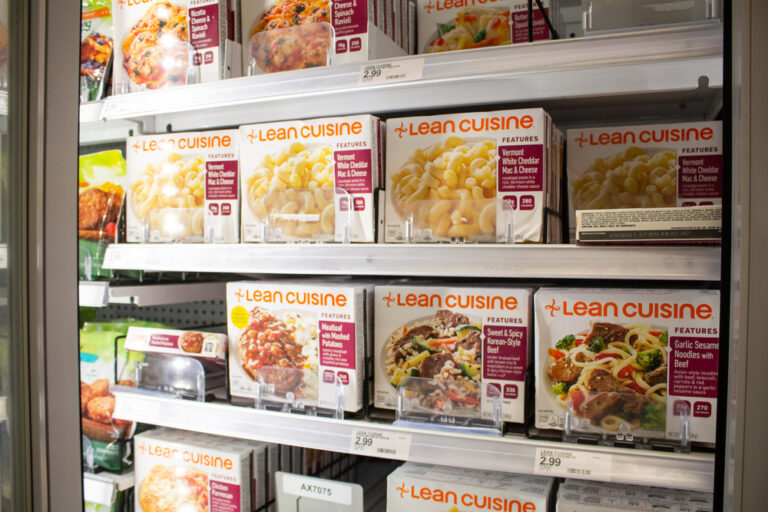Here’s Why You Should Support Local Farmers:
I think it is more important than ever to focus on ways to support local farmers. With the cost of living soaring, and as inflation is kicking us right in the ****, we need to find creative ways to save more, help the local economy thrive, and also eat healthily without breaking the bank. It feels like a constant juggling act, trying to make responsible choices while our wallets feel the squeeze from every direction.
What a hustle, right? Well, in the midst of our busy, screen-filled lives, it’s easy to overlook the simple, powerful solution right in our own backyards. From savoring produce at its absolute peak of freshness to meeting all kinds of interesting, salt-of-the-earth people, many of us forget to rely on local farmers! We’ve become accustomed to the convenience of the mega-mart, but we’ve lost a vital connection along the way.
But I’ve decided to change this, making a conscious effort to shift my shopping habits, and I’m inviting you to join me. To get us started, I enlisted all the compelling reasons why you should start buying from your local farmers and frequenting those weekend markets. This is more than just a shopping trip; it’s an experience that nourishes you, your community, and the planet. Needless to say, I’m waiting for you to come back and tell us how your local shopping experience was!

Taste real flavors.
The fruits and vegetables you would buy at the farmer’s market are by far the freshest and tastiest out there. This isn’t just an opinion; it’s a fact of nature. Fruits are allowed to ripen fully in the field, basking in the sun and developing their natural sugars and complex flavors until the very last moment. They are then carefully harvested and transported right to you, often within 24 hours of being picked.
Compare this to supermarket produce, which is often picked weeks before it’s ripe, while it’s still hard and green, specifically to withstand long-distance shipping. There’s no such thing as long-distance shipping with local food, no being subjected to artificial ripening with ethylene gas (which is so toxic!), and definitely no sitting for weeks in cold storage, which slowly drains the food of its texture, aroma, and vitality. What you see at the market is what you get: fresh from the farm, bursting with life. This is one of the best reasons to support local farmers: they provide the best thing out there, a taste of food as it was meant to be.
Enjoy the season.
The food you buy at the farmers market is seasonal, as you might know already. This might seem like a limitation, but it’s actually one of its greatest strengths. Well, that’s probably one of the reasons why it is always so fresh and delicious: it reflects its truest flavors, harvested at its natural peak. Shopping and cooking food bought from the farmer’s market will help you reconnect with the various social circles and, most importantly, the natural cycles in your specific region. You begin to live and eat in harmony with the world around you.
As you look forward to tender asparagus and crisp radishes in spring, try the sweet and tasty corn and juicy tomatoes in summer, and, of course, bake pumpkins and roast brussels sprouts when fall comes, magic happens. Even winter has its own gifts, like hearty root vegetables and winter squashes. Why? Well, that’s how you reconnect with the earth, the weather, and also the turning of the year. This rhythm provides a sense of grounding that is often missing in our modern, on-demand world, making cooking and eating a more meaningful and satisfying act.
Support family farmers.
Family farmers might need your support, especially now that large agribusiness and corporate farms dominate the majority of food production in the United States. These agricultural giants often operate on a scale that prioritizes volume and low prices over quality, sustainability, and community well-being, making it incredibly difficult for smaller operations to survive.
Well, small family farms have a rather hard time competing in the food marketplace. They don’t have the same access to massive distribution networks or the ability to absorb losses. However, buying directly from farmers at the market gives them a better return for their own hard work and also gives them the right to fight for their business in a globalized economy. Your dollar becomes a direct investment in their livelihood, ensuring they can continue to be stewards of the land and pass their skills down to the next generation. So yes, we should remember to support local farmers because we are supporting our neighbors and preserving the very fabric of our communities.
Protect the environment.
Food in the United States travels an average of 1,500 miles to get to your plate. Think about that for a moment. All this shipping uses large amounts of fossil fuels for transportation by truck, train, and plane, and other natural resources, which contribute to air pollution, greenhouse gas emissions, and also create a lot of trash from excessive packaging designed to protect produce over long hauls.
Conventional agriculture also uses way more resources than sustainable agriculture and often relies on vast monocultures that deplete soil health. Moreover, it pollutes the water with fertilizer runoff, and the land and air with toxic agricultural by-products and pesticides. Food at the farmer’s market is then transported shorter distances—sometimes just a few miles—and is usually grown using methods that minimize the negative impact on the planet. Many local farmers practice crop rotation, use cover crops to enrich the soil, conserve water, and avoid synthetic chemicals, acting as true guardians of our local ecosystem.

Nourish yourself
Is it even worth reminding ourselves that most food we find in grocery stores nowadays is highly processed and grown using all kinds of pesticides, hormones, antibiotics, and other genetic modifications? The journey from a distant farm to a supermarket shelf is a long one. Some of it has been irradiated to extend shelf life, waxed to look shiny, and even gassed in transit to force a semblance of ripeness.
All these practices could have a negative effect on human health, and they certainly impact the nutritional value of the food. In comparison, the majority of food that’s found at the farmers market goes through minimal processing, if any at all. Many of the local farmers go to great lengths to grow the most nutritious produce possible, starting with the foundation of all healthy food: healthy soil. They nurture the soil’s microbiome, which in turn leads to plants that are richer in vitamins and minerals.
And how do they do that? By using various sustainable techniques like composting and crop rotation, picking produce right before the market when its nutritional content is at its highest, and growing all kinds of nutrient-dense heirloom varieties. When you buy from a local farmer, you’re choosing food that is as close to its natural state as possible, offering your body pure, wholesome nourishment.
Discover the spice of life: Variety
At the farmers market, you will find an astonishing range of produce that you wouldn’t usually see in your average supermarket, which typically stocks only a few commercially popular varieties. Prepare to be amazed by red carrots, purple potatoes, striped heirloom tomatoes in a rainbow of colors, Romanesco cauliflower, fresh nettles, green garlic, exotic maitake mushrooms, and even beautiful watermelon radishes. It’s a great opportunity to step out of your culinary comfort zone and truly taste the incredible biodiversity of our planet.
Supermarkets often prioritize uniformity and long shelf life over flavor and uniqueness. Local farmers, on the other hand, often delight in cultivating rare and heirloom varieties, preserving a genetic heritage that might otherwise be lost. By trying these unique foods, you not only make your meals more exciting but also help create demand for biodiversity, which is essential for a resilient and secure food system.
Promote humane treatment of animals
At the farmers market, expect to find all kinds of meats, cheeses, and eggs from animals that have been raised the good old-school natural way, with a focus on their welfare. When you buy from a local rancher or farmer, you can often ask them directly about their practices and feel confident in the ethical origins of your food.
All those animals have seen green grass, felt the sun on their backs, and had space to roam (and I say that because you would be shocked to learn more about the cramped, stressful, and unsanitary conditions of other animals raised in the industrial system). They also eat natural diets appropriate for their species and have been spared the cramped and unnatural living conditions of cages and feedlots. This humane treatment isn’t just better for the animals; it results in a higher quality, more flavorful, and more nutritious product for you and your family.
Know where your food comes from
A regular trip to a farmer’s market is probably one of the best ways to connect with the land from which food comes and to shorten the chain between producer and consumer. In an age of anonymous, faceless food systems, this connection fosters a profound sense of trust and transparency. Also, meeting and talking to farmers and food artisans is a wonderful opportunity to learn more about how and where food is produced.
This direct relationship transforms your understanding of food. It’s no longer just a commodity on a shelf; it’s the result of someone’s hard work, knowledge, and dedication. Seeing the person who grew your carrots or raised the chickens for your eggs makes you appreciate your meal on a whole new level. It’s an invaluable education for children, too, teaching them that food comes from the earth, not a box.
Learn cooking tips, recipes, and meal ideas.
There aren’t many grocery store cashiers or produce stockers who could give you fantastic tips on how to cook the kohlrabi or celeriac you’ve just picked up. But farmers, ranchers, and artisans can, and they are almost always happy to share their knowledge. They are the true experts on their own products.
And they will because they’re also extremely passionate cooks with tons of free advice about how to cook the foods they are selling. You can ask, “What’s the best way to prepare these greens?” or “Which of your apples is best for a pie?” and get an expert answer. You could even try attending free seasonal cooking demonstrations by leading Bay Area chefs, a common feature at many larger markets. Or, if you prefer, you could try evening classes on food preservation and learn many other kitchen skills, like canning, pickling, and fermenting the seasonal bounty.
Connect with the community.
Let’s be honest, wouldn’t you rather stroll around outdoor stalls of fresh produce on a sunny day, with the sound of local musicians and happy chatter in the background, than actually roll your cart around a sterile grocery store with all those artificial lights and invading ads? The farmers’ market is a full sensory experience.
Another powerful reason why we should support local farmers is because we will also have a more pleasurable and meaningful experience. Shopping won’t be a chore anymore; it will be a weekly ritual, a way to socialize and connect with the community. It becomes a vibrant public square where you can meet your neighbors and feel a genuine sense of belonging.
You will have a place where you can meet up with your friends, bring your kids to let them sample a fresh strawberry, or just get a much-needed battery recharge at the end of a long week. It transforms a mundane task into a joyful outing that enriches your weekend and strengthens your ties to the place you call home.
Farmers markets always offer food that aligns with a healthy eating pattern.
All the existing guidelines for a healthy eating pattern, like the USDA’s MyPlate, will recommend that you get a variety of food from all five food groups. These food groups could also include fruits, vegetables, grains, proteins, and dairy. A farmers market is a one-stop-shop for building a wholesome, nutrient-dense diet from the ground up.
You can visit all kinds of booths for an incredible array of seasonal fruits and vegetables, but also for local grain products like freshly milled flour or artisanal sourdough bread, protein from pasture-raised meats and eggs, and dairy products like farm-fresh milk, yogurt, and cheese. This way, you can build a healthy plate composed of whole, minimally-processed foods. However, don’t forget: a healthy relationship with food also means enjoying treats. And what better treat than a freshly baked pastry or a jar of local honey, also found at the market?
If you are also looking for other types of organic food that you might not find at the local farmer’s, well, I got you covered! For instance, if you’re looking for organic coffee, I highly recommend you try this Pureoast Low Acid Coffee Ground organic house blend from PureRoast Coffee.
I am particularly looking for coffee that’s not as acidic as other types, for the simple reason that it hurts my stomach. It used to be that a strong cup of coffee, as much as I loved it, would leave me feeling off for hours. If you’re also into low-acid coffee that’s smooth, rich, and doesn’t cause that acidic kickback, you definitely have to try this. It’s been a total game-changer for my mornings.
Now, in case you don’t find anything to snack on at the local farmers market (which is unlikely, but hey!), you also need to try the Simple Mills almond flour crunchy cookies with toasted pecan. They’re my absolute favorites! They have that perfect homemade taste and a satisfying crunch, but they’re made with simple, wholesome ingredients you can actually feel good about. They are the perfect little treat to have with that cup of low-acid coffee.
If you’re eager to read other articles, we definitely recommend trying these 2:
8 Tricky Strategies Walmart Makes You Spend More Money
17 Holiday Overspending Tips: Here’s What You’re Wasting Money On














